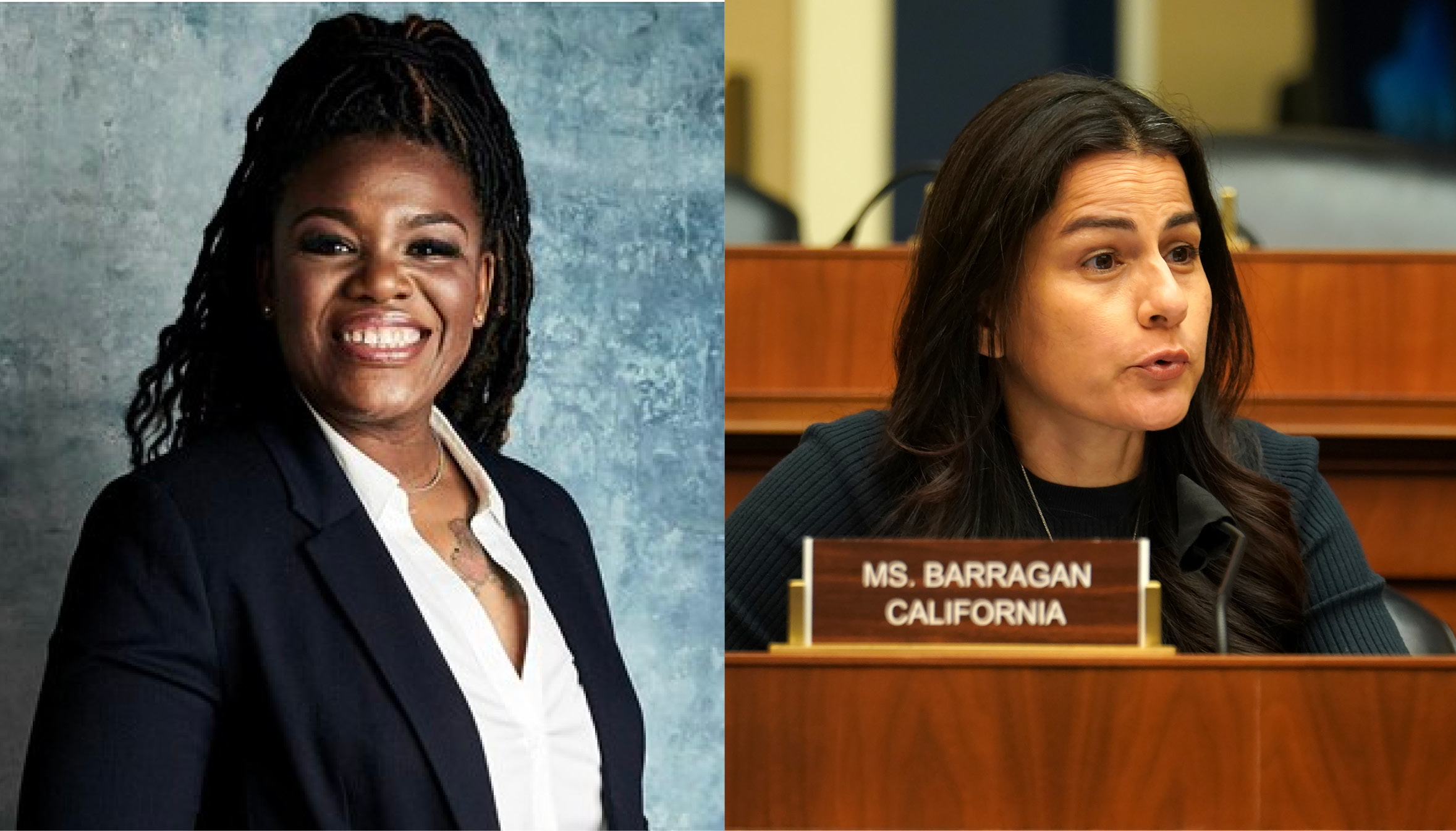
Reps. Cori Bush and Nanette Barragán raise alarm on low Covid-19 vaccination rates in BIPOC communities
So far, studies across the nation show that the vaccine rollout hasn’t been equitable, putting those most affected at even higher risk.
From the start, racial equity in the COVID-19 vaccine trials and distribution process has been flawed.
By now, it is well known that the pandemic has by and large affected Black and Latinx communities at higher rates than white communities. Then, those developing the vaccine ran trials that lacked representation from the disproportionately-affected groups.
Moderna’s phase three trial lacked Black, Latinx, and Indigenous participants, with said racial groups composing just 18% of all participants.
In August, Rep. Nanette Barragan (D-CA) raised concerns.
With such discrepancies between real-life cases and the trial pool, she wrote a letter to the National Institutes of Health to urge vaccine trials in racially diverse communities.
Barragán’s district is the 44th Congressional District in California. It’s 90% Latinx and Black, and has experienced troubling rates in both cases and deaths from COVID-19, compared to predominantly white areas of Los Angeles County.
Months after the Moderna study was released, and vaccine distribution was a “go,” people started raising alarms over distrust among Black communities on the vaccine’s safety. Vaccine fears didn’t begin with COVID-19, and it reminded healthcare workers on the flawed history of medical testing and vaccines among Black Americans.
Historically, Latinx and Black communities have navigated years of mistrust with the medical system, rooted in inequity, and at times even inhumane practices.
Recently, the vaccine rollout itself has compounded the setbacks in administering the vaccine in BIPOC communities. Despite prior knowledge of the fears among Black and Latinx communities, along with well-known knowledge of hard-to-reach areas, it lacks equity.
To raise awareness, Reps. Barragán and Cori Bush (D-MO) addressed the president on Feb 2, about their concerns with the inequitable distribution of vaccines to underserved communities of color.
The letter references actions taken by the Trump administration in its last months, its mishandling of the initial rollout of the vaccine, and provides the Biden administration with limited data on the vaccine during the transition period.
RELATED CONTENT
“Currently, 4 percent of the White population has received a COVID-19 vaccine, as compared to onl 1.9 percent of the Black population and 1.8 percent of the Latino population,” the letter reads, referencing former CDC Acting Director Dr. Richard Besser.
Though the administration suffered setbacks during the transition, the letter urges that Biden’s team should be looking for “creative” approaches to solve the issues and get the vaccine to those most impacted.
Bush and Barragán suggest moves that Biden can make, for instance specifying shipments of the vaccine to providers in underserved communities with the highest rates of mortality.
“Black and brown communities in St. Louis have been devastated by COVID. We must ensure that they not only have access to the vaccine — but have their safety concerns addressed.@RepBarragan and I called on @POTUS to outline his plan for an equitable vaccine distribution process,” Rep Bush wrote on Twitter.
Black and brown communities in St. Louis have been devastated by COVID. We must ensure that they not only have access to the vaccine — but have their safety concerns addressed.@RepBarragan and I called on @POTUS to outline his plan for an equitable vaccine distribution process. pic.twitter.com/NykAYuP2oq
— Congresswoman Cori Bush (@RepCori) February 2, 2021
To end their letter, the representatives leave Biden with a list of questions his administration must ask itself as vaccine distribution continues across the country to ensure equity, as well as vaccine hesitancy within BIPOC communities.
In a separate letter, Barragán highlighted the urgency, especially considering that with each step of the vaccine rollout process, Black and Latinx communities have been neglected.
“Lives are on the line and time is of the essence,” she wrote on Twitter.










LEAVE A COMMENT: